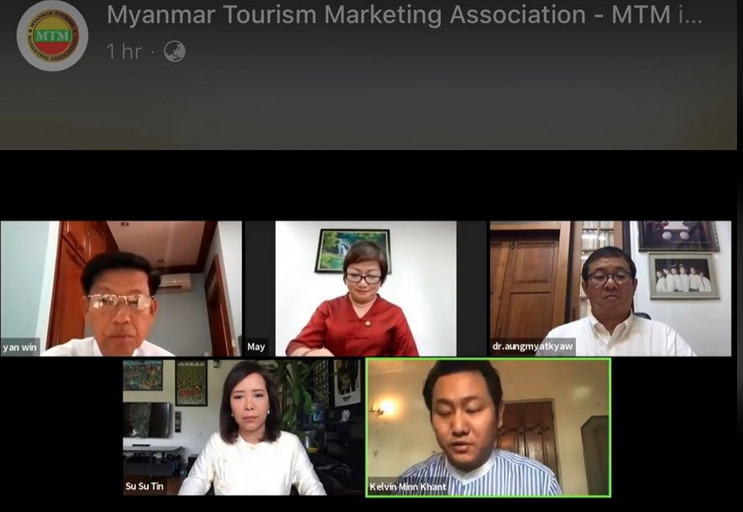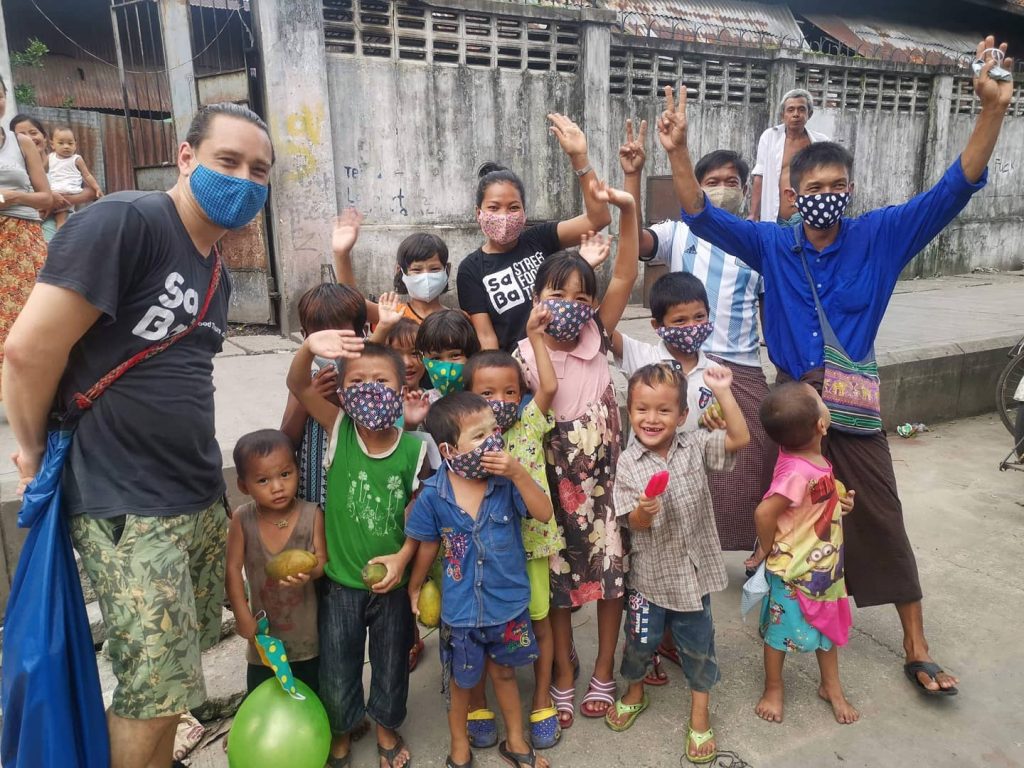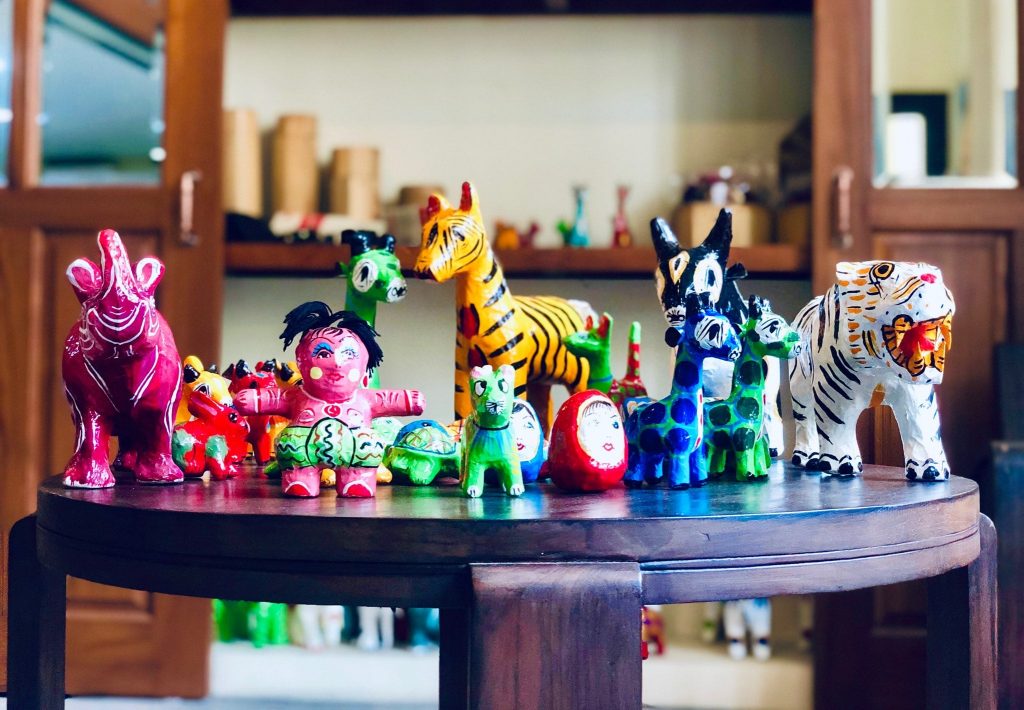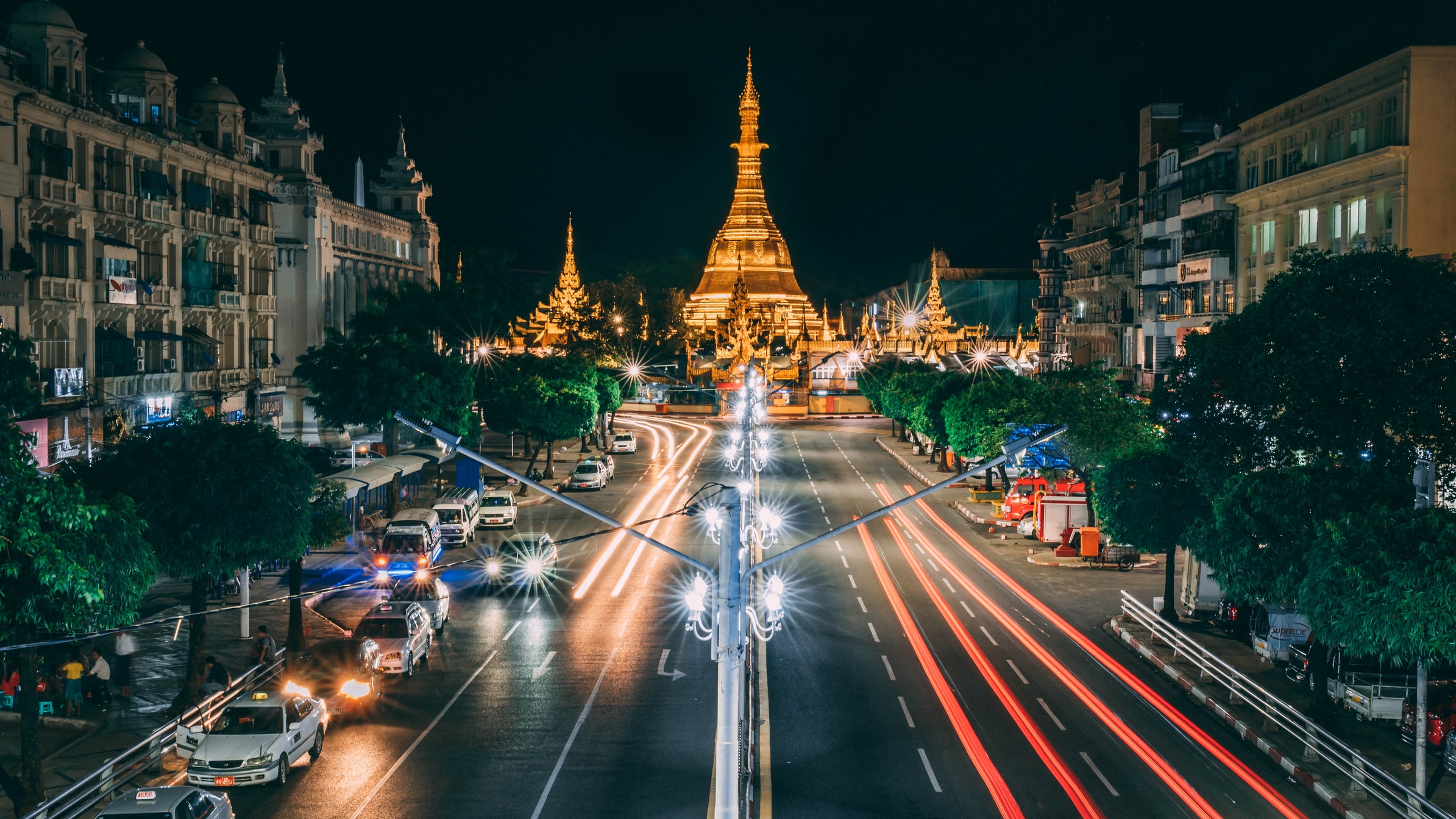LIVE Replay: Coping with COVID-19 – Resilience and Innovation in Myanmar
Here’s the event recap of Yangon’s Travel Massive LIVE Event Coping with COVID: Resilience & Innovation in Myanmar.
This event recap was written by Bertie Alexander – leader of Yangon Travel Massive. Bertie is Managing Director of Sampan Travel, creating tailor-made journeys in Myanmar.
Despite the low number of confirmed cases within the country, the coronavirus pandemic has badly shaken the Myanmar tourism industry. It is facing an existential crisis.
But this is not the first crisis to hit the Myanmar tourism industry. The Saffron Revolution saw Buddhist monks facing up to the army in 2007, Cyclone Nargis struck in 2008 leading to over 138,000 fatalities, and in 2017 the plight of the Rohingya in Rakhine State made headlines around the globe causing a PR catastrophe for the country. With each crisis Myanmar’s nascent tourism industry is struck down. Down, but not out.
Players in the industry have experienced coping with crises. Out of the lockdown induced by the coronavirus pandemic have emerged stories of positivity and innovation.
In this online roundtable we heard some of these stories. Stories about initiatives set up to help the most vulnerable communities; how organisations have built up resilience and how they have placed sustainability front and center of the travel reset.
We heard why during the crisis the Myanmar government dramatically changed the way it communicates with the private sector; how one tour operator in Yangon utilized its assets and kept its team busy during lockdown; and why DMOs will be of increased importance in the recovery.
Catch the LIVE Event recording below:
Our guests were:
- Daw May Myat Mon Win: General Manager of Chatrium Hotel Royal Lake Yangon and Chairperson of the Myanmar Tourism Marketing Association
- Marc Short: Founder of Sa Ba Street Food Tours
- Nann Thandar Thein: Customer Service and Marketing at Khiri Travel
- Dr Andrea Valenntin: Founder of the NGO Tourism Transparency
Myanmar Tourism Marketing Association
We first spoke to Daw May Myat Mon Win. May started her career at the Summit Parkview hotel in 1994 as a secretary. She then became a sales executive and worked her way up the ranks to become not only the first Myanmar General Manager of Chatrium Hotel, but also the first Myanmar woman to reach this level at any of the country’s five-star hotels. She also chairs Myanmar Tourism Marketing (MTM) to support the country’s tourism development.
MTM set up a series of online panels in the month of May entitled “COVID_19 Wave and Myanmar Tourism Industry”. These 10 sessions were watched by thousands online and marked a shift in the way that the Government interacts with the private sector: not only did the Ministry of Hotels & Tourism watch the panels but a representative (U Tin Latt, Deputy Minister, Ministry of Hotels & Tourism) appeared on the final, 10th Session, which went on for over three hours and has been watched almost 6,000 times since on Facebook.
May began be commending the good work of Myanmar’s Ministry of Health and Sport. At the time of the event there had been less than 300 confirmed cases in Myanmar and over 70% had already recovered.
Nonetheless, the tourism industry had been hit hard. There were 4.36 million visitors in 2019, a 28% increase from 2018. January 2020 was looking strong but arrivals had fallen of a cliff by the March.
May said that MTM was “devastated” at first by the impact of the virus. They came up with the idea of the panel series bringing together the leaders of the industry to share their thoughts and recommendations; private sector, development sector, and finally some “titans” of the Ministry of Hotels and Tourism (MoHT).

May said that MoHT had wanted to be involved in the panel series so to share what the government was planning and what they were already doing.
‘Overcoming together’ is the key phrase in the government’s recovery plan: The Myanmar Tourism Strategic Roadmap. This new model of open communication from MoHT is a sign of things to come, May believes. In the past there was discussion in “meetings and seminars” but not “broadcasting live”.
May sees this as a great change from the past and a chance to reform communication in the future. In the past the government were seen to be very cautious about speaking publicly. Now, that seems to be no longer the case.
Sa Ba Street Food Tours
Sa Ba arranges tours around Yangon introducing visitors and expats to the eclectic delights of the city’s cuisine. Sa Ba arranges breakfast and evening tours, tours on foot, tours by trishaw, tours to markets, cookery classes and now a day tour across the Yangon River to enjoy the food of the rural village in the delta. Marc Shortt and his team at Sa Ba are now offering “Jungle Cooking and Trekking in Hsipaw Northern Shan State.
During lockdown many of Marc’s partner food vendors were shut down. Marc could see that “people were really struggling”. Some of them had savings but not a lot. Marc realized that he needed to try and “do something positive in these weird chaotic times” and so attempted to connect his vendors with a network of people who wanted to help.

Marc sent a call out for donations. It didn’t have to be much. 45$ (60,000 MMK) could pay for 100 dishes from some of these vendors. In the first week Marc was astounded by the response his call was getting. One person donated 500 $. With the trishaw drivers that Marc uses for some of his tours, he began visiting poor communities in Yangon with the food: “homeless people, people who are struggling, unemployed at the moment, families with small kids, babies, pregnant women, people sleeping under bridges, people in hidden away communities where maybe there is 50 people in very basic accommodation and struggling for food.”
Marc is still receiving donations and making donation runs three times a week. He said that he has been pleased to see proof of “people that really appreciate this side of Yangon and they really want to help. Yangon and the people mean so much to them.”
Honeybee & Kumel
A survey by MoHT & LuxDev reported that 60% of tourism companies have had to reduce their workforce through furlough or redundancies.
Khiri Travel, a DMC with a passion for innovate products and sustainable travel, didn’t do that.
Nann Thandar Thein, who is the Customer Care Manager at Khiri, told us how the company made the decision to keep all its staff but looked to come up with a way to keep them busy while at the same time initiating projects that would support communities in Myanmar, not just in the short-term but in the long-term.

The management team at Khiri Travel decided to set their team the task of founding two new social enterprises: KuMel – a portal for volunteers – and Honeybee – an online shop for Myanmar artisans.
The workforce at Khiri split into two groups and then each team voted for their team leader. Team leaders could not be part of Khiri’s management and roles were mixed so that people were experiencing tasks that they were unfamiliar with. For example, workers in the Khiri’s Sales Department took on operations tasks in the two new organizations; while those who normally do operations for Khiri tired their hand at marketing for the two new projects.
The two social enterprises are still going strong – learn more about Kumel and Honeybee Arts & Crafts.
DMOs and the future
Dr. Andrea Valentin is interested in the politics of tourism in Myanmar. She wrote her PhD on this topic, and has been working on responsible tourism development in Myanmar since 2012, when she started the Myanmar Dos and Don’ts for Tourists project. She is the founder of Tourism Transparency, a small NGO advocating for responsible tourism development, and she is working as an advisor for different INGOs working in Myanmar. Her particular focus is on sustainability in Tanintharyi.
Andrea has been working with the Italian NGO OIKOS about how to build up sustainable tourism management in Myanmar’s Mergui Archipelago. Bringing together private sector, government but also civil society groups.
The Draft DM Plan has now become a Recovery Plan as priorities are changing in the face of COVID – the DMO will help in building resilience and over-coming this crisis.
Asked about the future Andrea said that it was vital we find a balance between improving hygiene standards while at the same time looking after the planet.
Are we embracing the change, we asked? There is now “better communication”, she said. “We are on the right way.”
Post Lock-down
Looking ahead to post-lockdown, May said we must not underestimate the task ahead of us in ensuring that Myanmar is hygienically secure. The safety and hygiene SOPs that hotels currently enforce are like “kindergarten” in comparison to what is coming next. The National Tourism Guidelines for Health and Safety are a good first step, which will be continuously reviewed and updated.
We asked Marc if he felt that travelers would be nervous about taking a food tour due to the pandemic. He didn’t think so. “People are still going to want the authenticity that Sa Ba offers; but then we need to follow the regulations and also the expectations of our guests.” He expects a request for smaller or even private groups.
Thandar is back at work with Khiri. They already have some expatriate clients and are training their guides through Zoom and Skype to ensure their guests are as safe as possible.
The last word went to Andrea. She said that it was vital we “really look at the science” both for the virus and climate change; “I have really great hope because with the little resources that we have we are managing quite well. We have to use this crisis because we may not get a chance like this again.”
Follow Bertie Alexander on Travel Massive to connect with him.
👋 This article is archived. Take a look at our new website.
